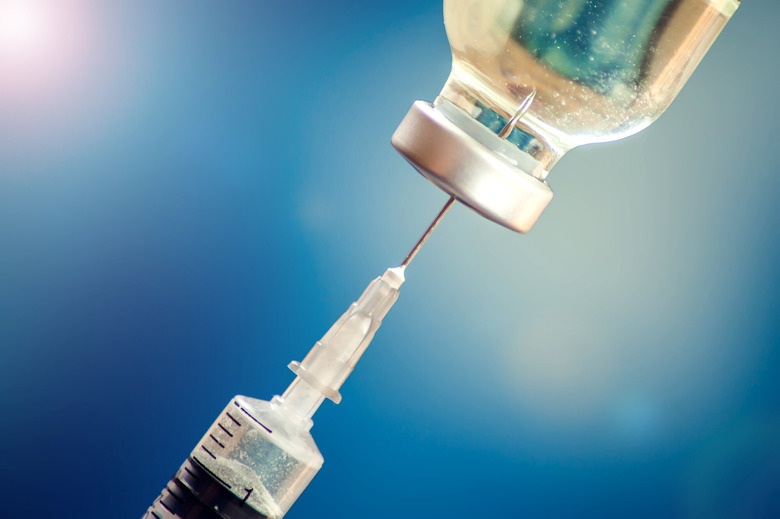One Thing You Definitely Shouldn't Do The Night Before Your Coronavirus Vaccine
If you're planning to get vaccinated soon, health experts suggest that you take it easy the night before so that you're well-rested and your immune system is in tip-top shape. You might also want to avoid any alcohol the night before your vaccine appointment, which is to say you should save any celebratory drink plans for afterward.
While the CDC hasn't issued a formal notice on the issue, health experts have cautioned that consuming alcohol the night before your vaccine could potentially weaken your immune system and, in the process, weaken the efficacy of the vaccine itself. So while there's no formal warning against drinking before your appointment, it only makes sense to err on the side of safety. Incidentally, it's worth noting that volunteers who participated in Pfizer and Moderna's clinical trials were asked not to drink alcohol the night before their vaccine doses.
"You need to have your immune system working tip-top to have a good response to the vaccine, so if you're drinking the night before, or shortly afterwards, that's not going to help," immunologist Sheena Cruickshank of the University of Manchester said recently.
In a similar vein, Professor Christopher Thompson of Loyola University Maryland suggests that people refrain from binge drinking a few days before their appointment and even a few weeks after receiving their second dose.
"Most of the available data on how alcohol impacts the immune system and vaccine responses suggest that, in general, people should avoid binge drinking and heavy drinking around the time of the vaccination," Thompson told Healthline. "Ideally, this would be avoided for at least a week before the first dose and one month after the second dose."
Some health professionals, however, take an opposing point of view, at least as it pertains to more measured alcohol intake.
For instance, Dr. Hana El Sahly from Baylor College of Medicine believes that moderate alcohol consumption before getting vaccinated shouldn't have much of an impact on the vaccine's efficacy.
"Alcohol consumption was not assessed as a variable in the large Phase 3 clinical trial," Sahly said. "We do not expect that occasional or moderate amount of alcohol ingestion to affect the response to the vaccine. And we are not requesting from subjects or the general public to abstain from alcohol around vaccination time."
Alcohol aside, one warning that all medical professionals seem to agree upon is that you shouldn't take pain relievers like Tylenol or Advil before getting vaccinated as it could impact your immune system response to the COVID-19 vaccine.
"I mean, if you're going to take something that suppresses an immunological response, then obviously, you don't want to take something like that," Fauci said of pain relievers recently. "Something that's a true anti-inflammatory, such as one of the nonsteroidal anti-inflammatories, should not be given."
As a final point, the COVID-19 vaccination effort in the US is still gaining momentum with each passing week. In fact, President Joe Biden yesterday said that he will direct states to make all adults eligible for the coronavirus vaccine effective May 1.
"If we all do our part," Biden said, "this country will be vaccinated soon, our economy will be on the mend, our kids will be back in school, and we'll have proven once again that this country can do anything."
